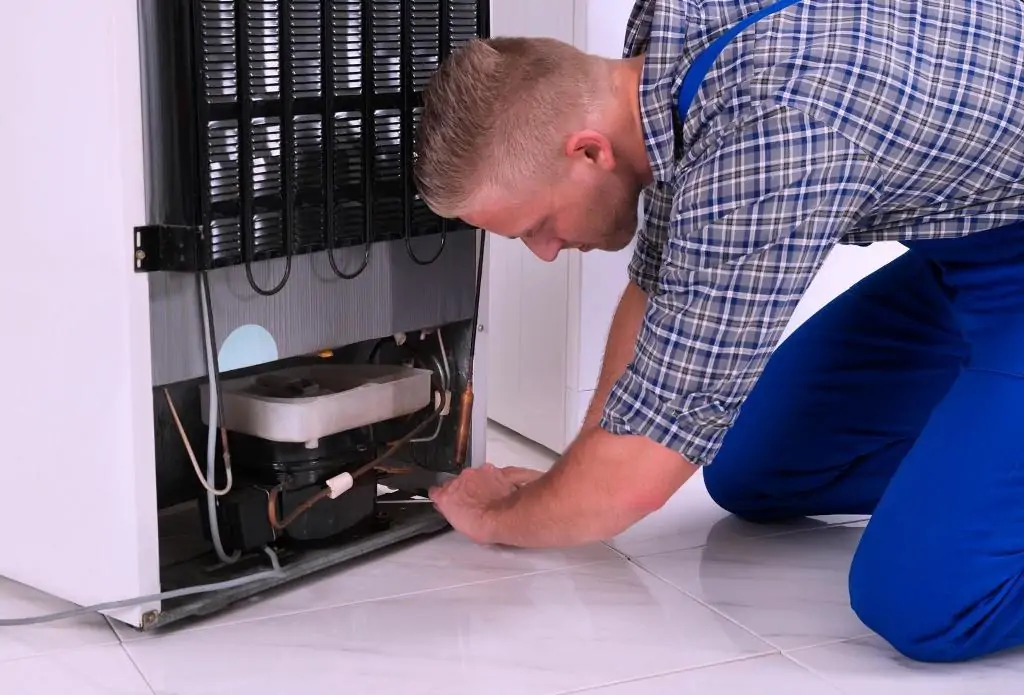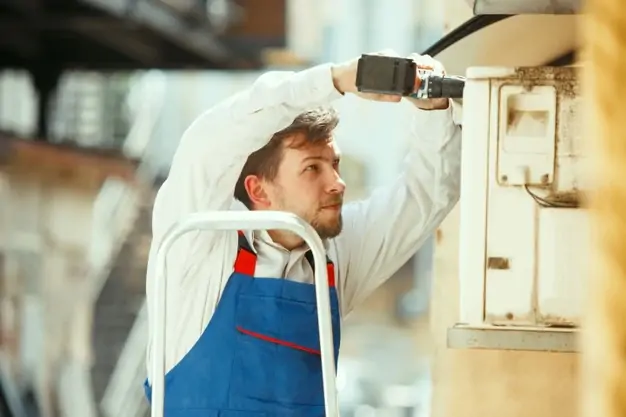
Any commercial refrigeration equipment being used daily has an urgent need to be maintained, no matter if you’re in the high or low season. By ensuring regular maintenance, you can avoid significant breakdowns before and during the busiest months and ensure customer as well as employee satisfaction.
In a lot of cases, commercial fridges and coolers have to be repaired because businesses or employees forgot to clean them like they clean floors and everything else. The inside of fridges should be cleaned to remove any stains, and the outside should be cleaned to prevent exterior spills from getting inside the fridge. Make sure that you wipe away any excess moisture as well.
Also, make sure that you clean the flooring underneath the equipment. In this way, you can prevent food from being contaminated with bacteria and mold. You should also clean the condenser coils as part of maintaining the condenser, the next task to be completed.
A commercial refrigerator should be maintained at least every six months by cleaning this component. It’s important to clean them if they’re dirty, and that’s all you need to do. Standard recommendations also advise you to do it every six months; that number may be increased depending on your situation.
For this reason, you should keep your business’s refrigeration system in good shape and ensure there isn’t anything blocking the coils. The evaporator must work harder than it should to cool the interior when debris accumulates. The motor of the evaporator might even need to be serviced to reduce strain.
Slime and sludge can form in larger commercial refrigeration units and freezers, which causes them to become stuck and stop working. Tubing and drain pans tend to collect this sludge the most frequently. It will create a foul, pungent smell throughout the kitchen if these pans overflood with sludge and moisture. An overflow in the defrost system would cause the water to leak onto the floor if the tubing were to clog.
The supplier’s kitchen equipment should be cleaned to prevent these issues. It is recommended that you clean out the pan at least once a month by using vinegar solution or warm water and soap. To prevent major blockages from occurring, check the tubing every few months. Occasionally, calcium or water spots may build up on the hoses’ exteriors; if this happens, cleaning the hoses with soap and water will help prevent further wear.
The more often the refrigerator is used, the more likely it is to tear or split door gaskets or seals. Refrigerators have to work hard to keep conditioned spaces cool. The leaking of warm air into a fridge from a ripped or split gasket can spoil food. Bacteria and mold growth can also be caused by food debris in these worn-out gaskets.
Inspections of the commercial refrigeration unit’s door gaskets on all four sides are a good idea every so often. Ensure that there are no rips or tears and that all four sides of the door are well-sealed. If there are any food particles in the gasket, it should be cleaned with mild soapy water.
Your commercial refrigeration units must have an evaporator coil, just as they must have a condenser coil. When the warm air enters the system, this part absorbs heat, cooling the interior of the vehicle as it passes through.
Cleaning this part is equally vital. Maintain a clear coil in the fridge or freezer and avoid putting too much stuff in the interior, especially if they are hot. When the evaporator coil is blocked with debris, it will freeze. When that happens, the cabinet temperature will rise, and water will leak.
You will also need to keep your ice maker clean if your commercial refrigeration includes one. A wide range of health problems can result if you leave it alone for too long, including bacteria accumulation and mold growth. Ensure that the ice is clean before throwing it into a drink, as no one likes to drink dirty ice.
It’s no harm to hire a technician to do this step for you if you still can’t get it right.

A commercial refrigeration unit also comes with an air filter, just like a furnace or air conditioner. In order to allow air to flow in and out of the fridge or freezer, canteen equipment manufacturers insist on keeping everything clean. Exactly how does this happen? Dirt and grease from food preparation.
Make sure any dust or lost particles are removed from the air filter of your fridge using a powerful vacuum. With a degreasing solution, remove any thick grease accumulation.
In addition to damage, grease and buildup can be a source of contamination. You should immediately replace the air filter if you see any splits in it from debris while degreasing.
Lets talk about it
Copyright by Riddhi Display. All rights reserved.
Powered by: Icecube Digital